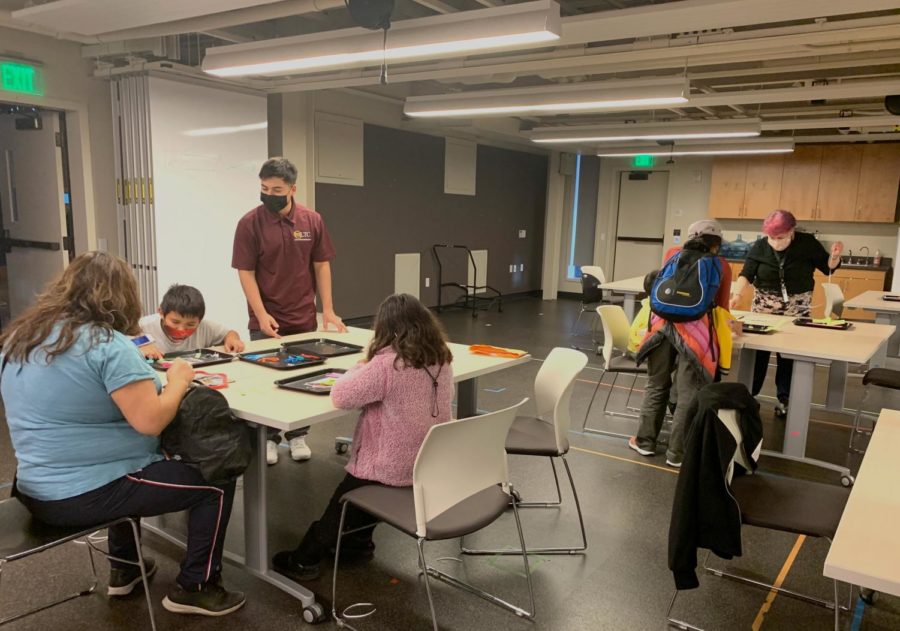Thousands spent their Sunday at San Francisco’s Exploratorium to learn from exhibits and hear from experts in science, technology, engineering, and math (STEM).
Latinx Engineering Day is hosted yearly on the last Sunday of September at the Exploratorium, with the usual museum hours.
“Every year during the Hispanic Heritage Month, we put on Latinx Engineering Day in conjunction with the Exploratorium and the Society of Hispanic Professional Engineers (SHPE), a group of Latinx college students studying engineering,” said Jim Hollis, Calculus Roundtable executive director. “They bring volunteer docents to talk to kids and show them different events; it’s a way to get families and students involved in stuff outside of the school.”
Sunday’s event is the biggest of the year, which takes two to three months for both organizations to plan.
Calculus Roundtable is a nonprofit organization that works with students of all ages and backgrounds. Specifically, they work to promote STEM education to underprivileged kids.
It opens their minds to the possibility of looking at science and math in a different way than we know from the data.
— Jim Hollis
“It opens their minds to the possibility of looking at science and math in a different way than from the data,” Hollis said. “I think it brings a little more coolness to learning; some kids think math and science aren’t cool, so we try to bring it to places where they already know it like video games and having hands-on experience with doing it themselves.”
Additionally, Calculus Roundtable intended for teachers and students to learn from the exhibits and gain new ideas for teaching in the classroom.
“To teach children in a new and interesting way, you also have to teach teachers to implement the new interesting ways,” Hollis said. “They have to have the capacity to do more creative things with technology or virtual field trips or things that get students more engaged rather than simple worksheets.”
Small, portable stations were situated in the mirror and bubbles hall and the biology hall. Each promoted a different discipline of engineering.
Each station was not exclusive to those that registered for Latinx Engineering Day. Instead, the stations and volunteers encouraged passersby to try out the experiments.
“Don’t get deceived by the name because Latinx Engineering Day is arbitrary,” said David Flores, an electrical engineer and volunteer. “The main reason we’re here is to have kids to see to spark their interest in any STEM-related careers.”
Flores, a member of the Bay Area chapter of SHPE, rotated with other volunteers to assist with demonstrations. Bilingual volunteers kept the visitors engaged while switching between English and Spanish.
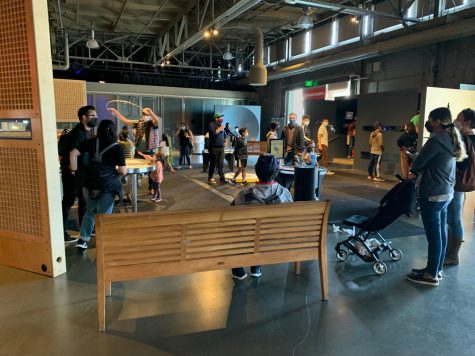
Despite not being registered for the event, many were attracted to the stations. Each station had four groups actively participating at the same time.
One of the groups, Joel and Riley Sanchez, was a father-daughter pair building a paper, nonmotorized helicopter. Sanchez hoped this event would allow many young students to realize their passions and talents.
“There’s a lot of great avenues for talented people that want to explore that profession and help shape the world, which is what good engineers do, with vision and passion,” Sanchez said.
Calculus Roundtable, SHPE, and the Exploratorium will continue to host the event and promote STEM education to less privileged communities. The event will remain in person and open to the public, even if not Latinx in origin.
“It is a free opportunity to give their students access to a world of science and high-paying careers that they can get access to,” Hollis said. “It’s fun, engaging, and we’re going to be celebrating Hispanic heritage with many of the events that we do. It’s a great outing for the whole family.”
This story was originally published on Scot Scoop News on September 27, 2021.

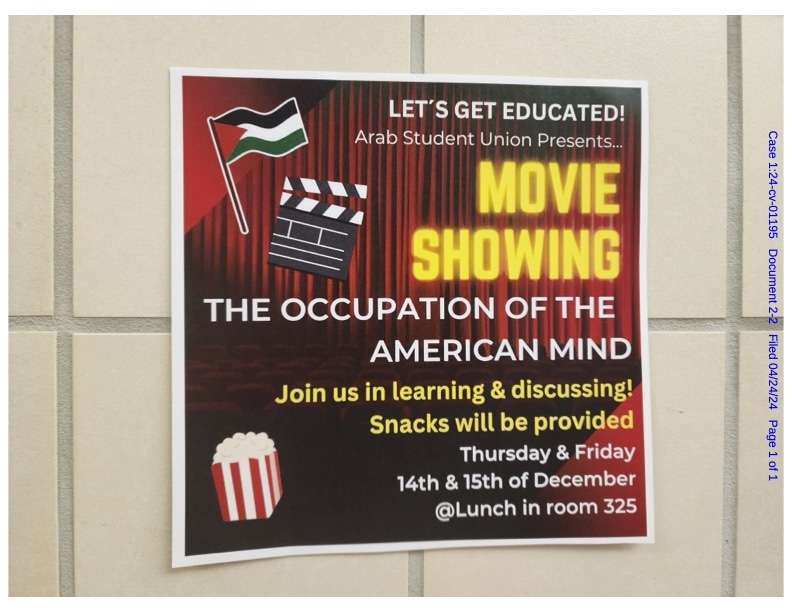
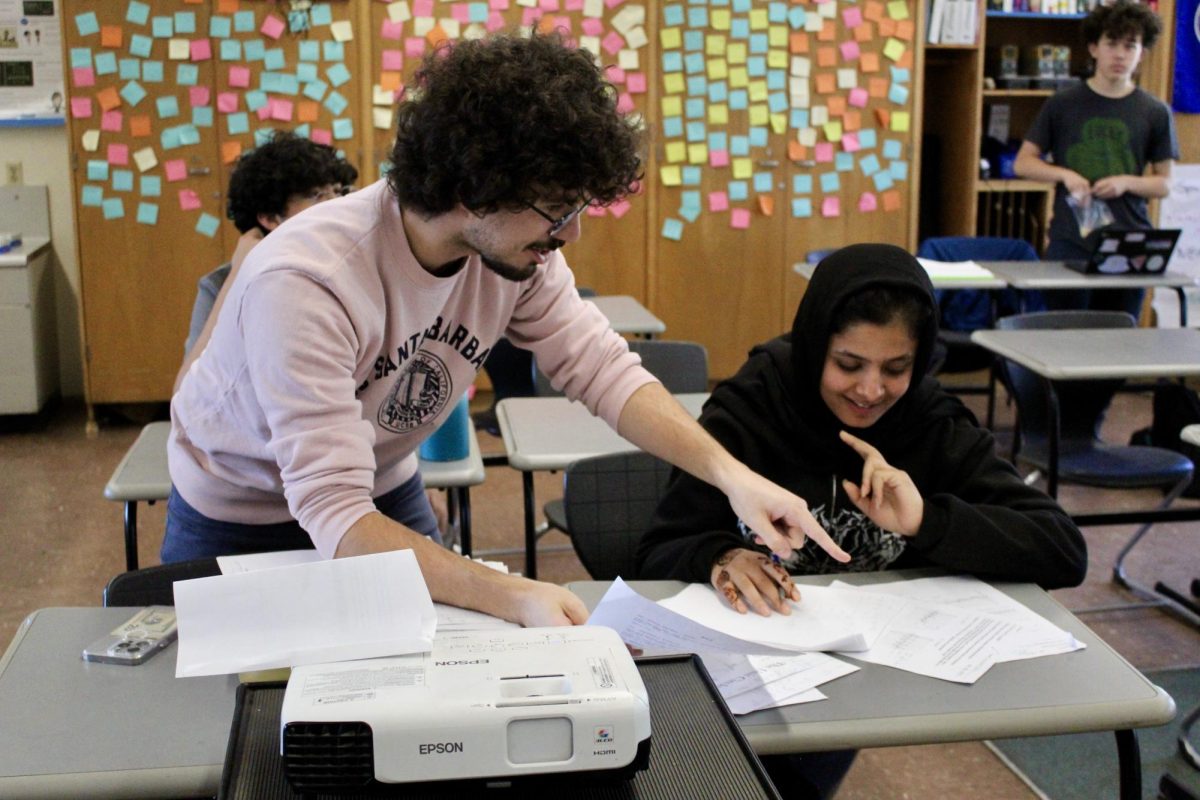
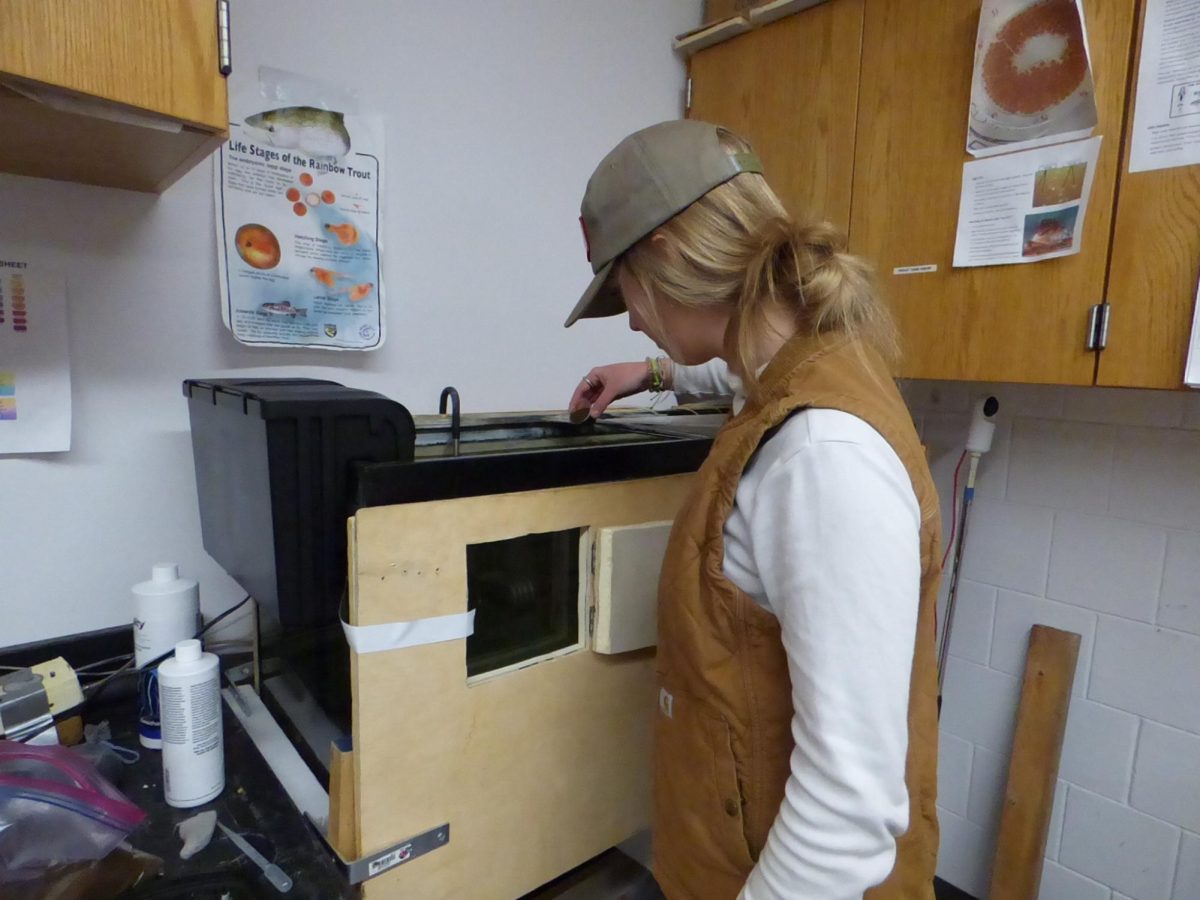



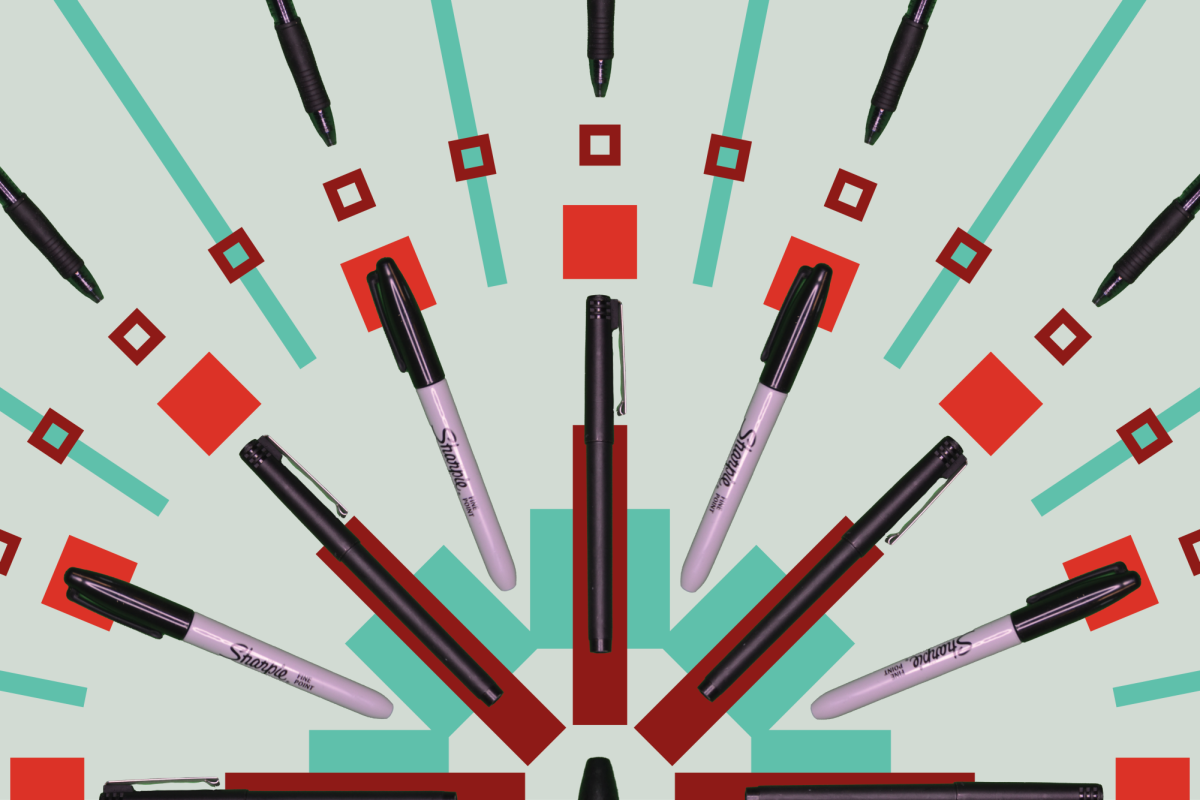

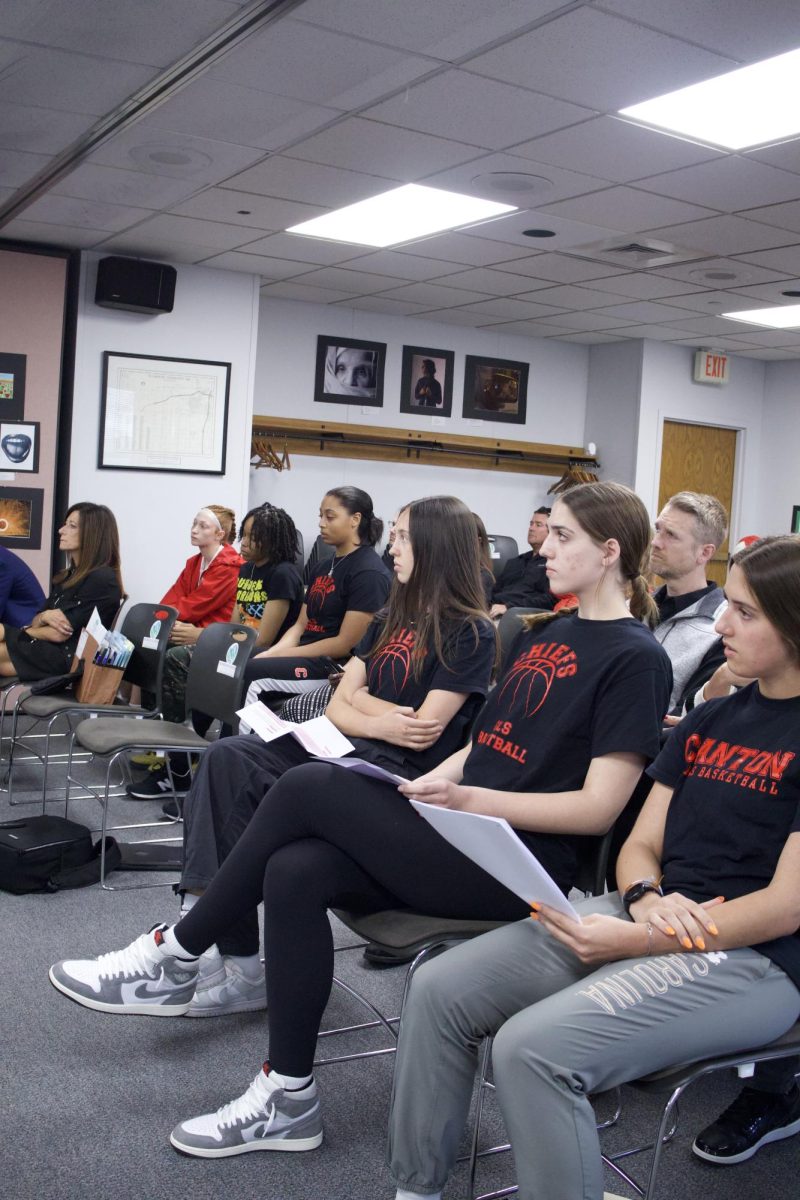

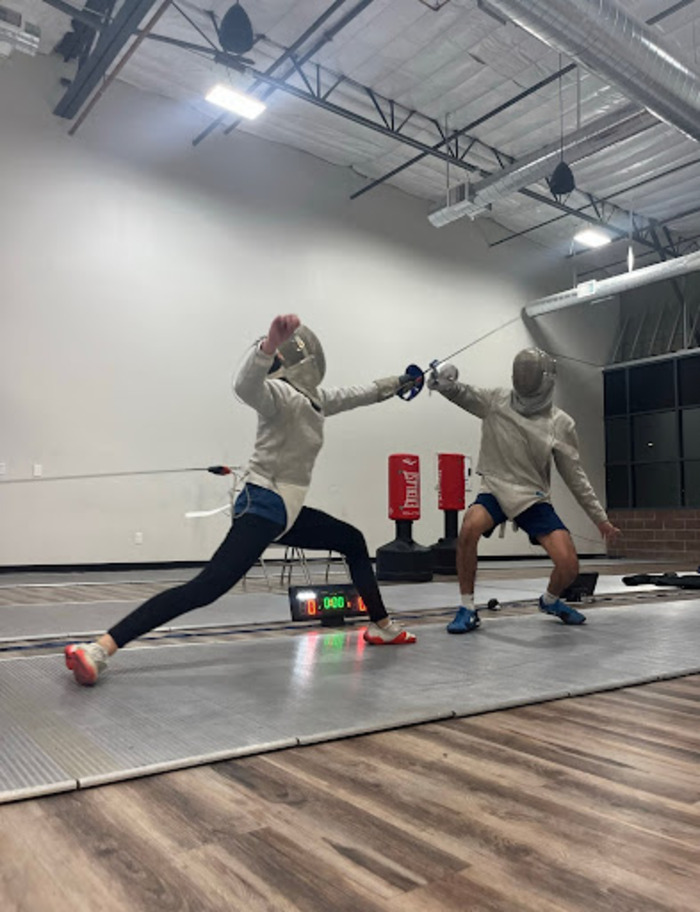

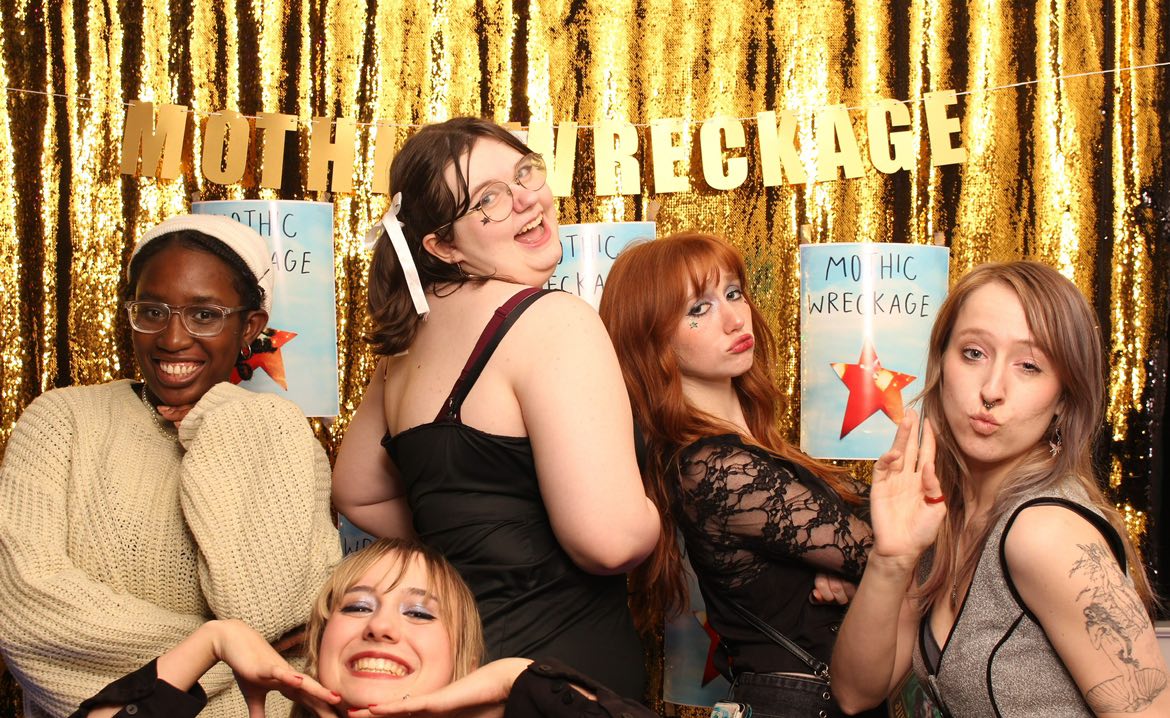

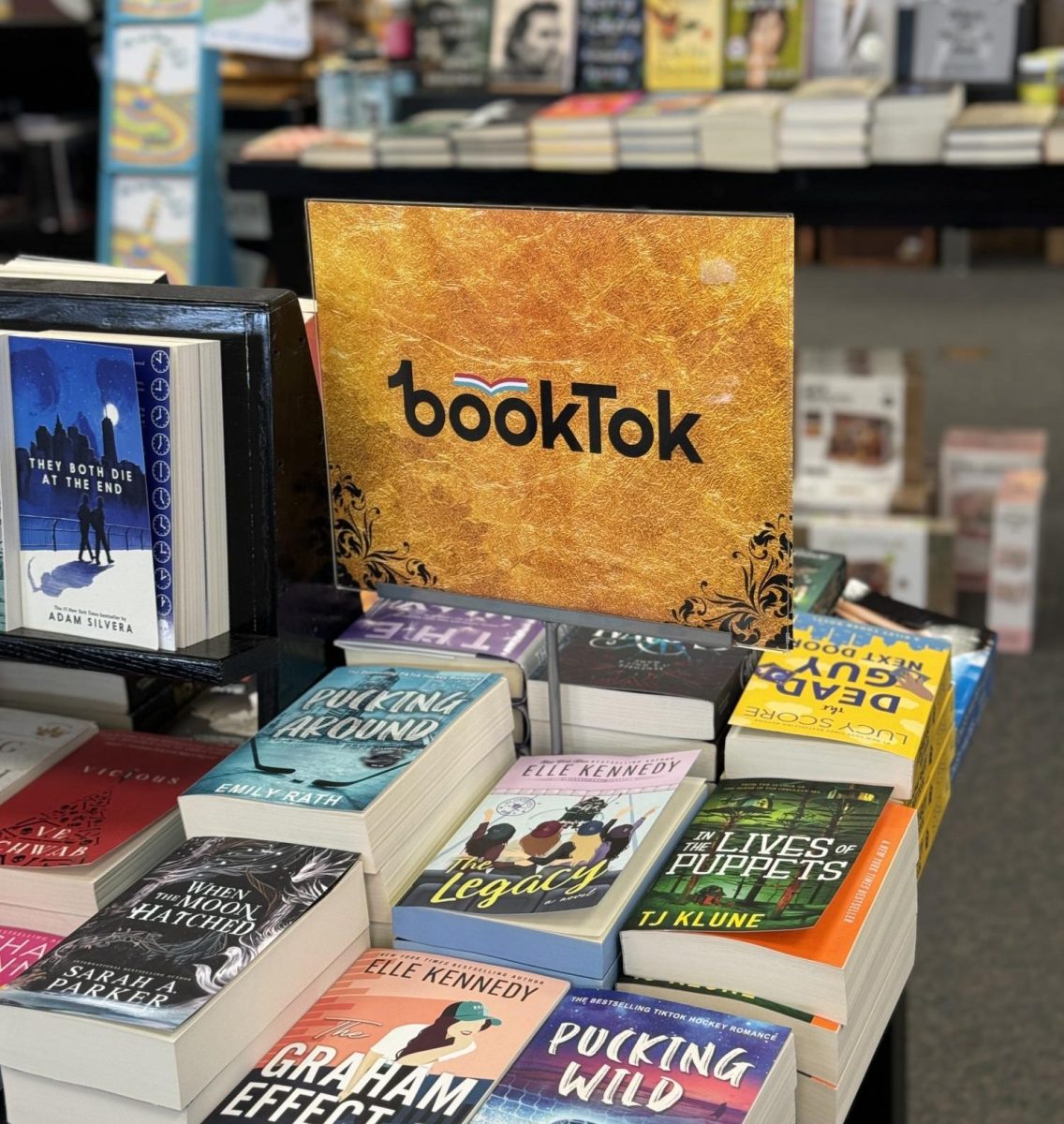
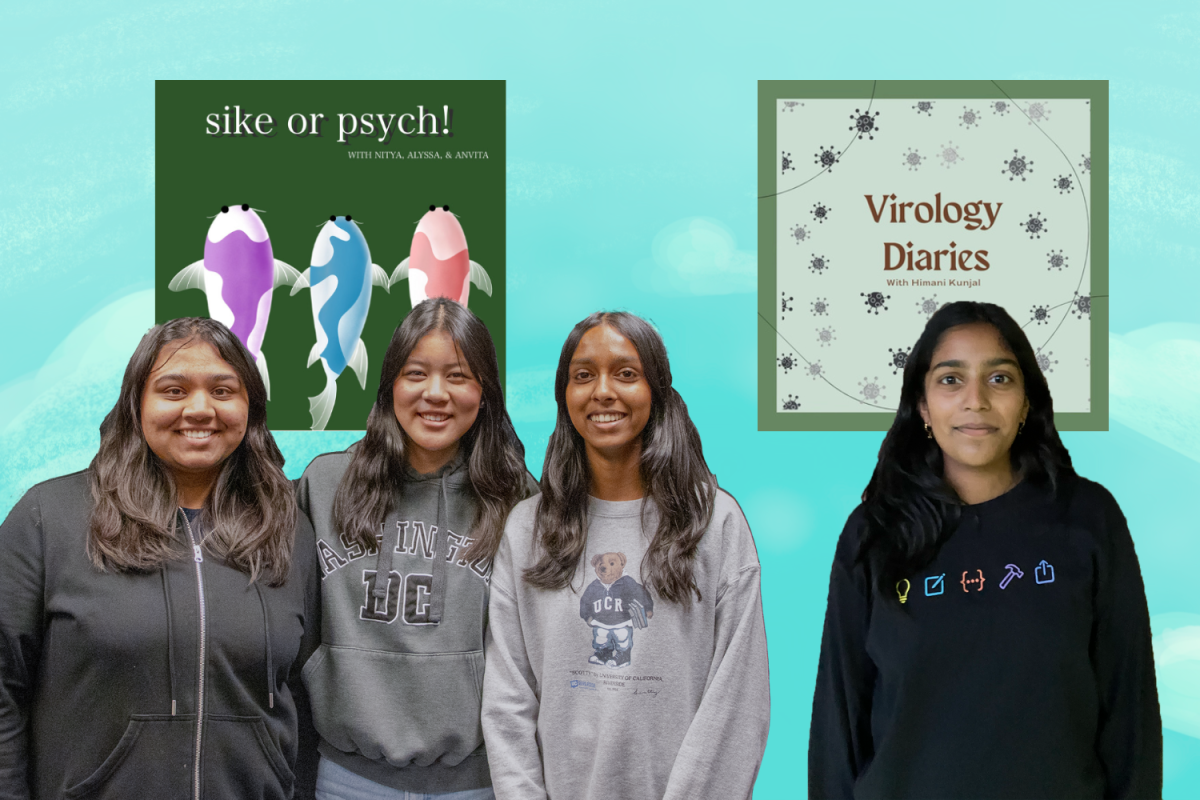
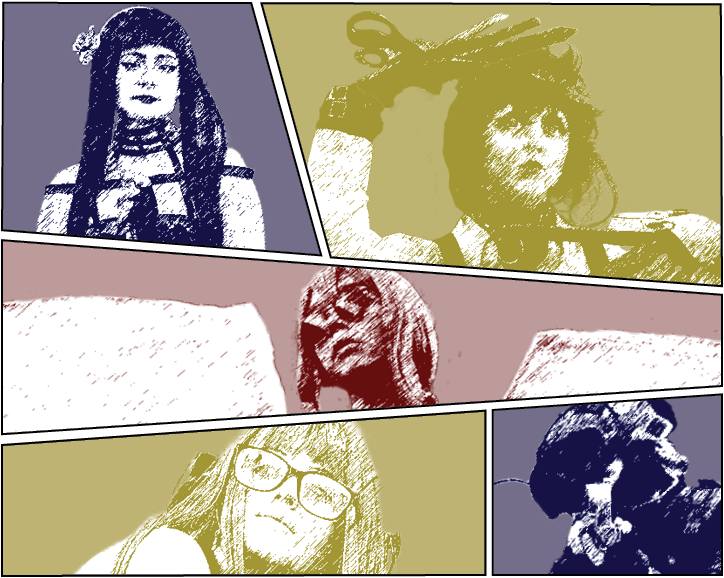













![IN THE SPOTLIGHT: Junior Zalie Mann performs “I Love to Cry at Weddings,” an ensemble piece from the fall musical Sweet Charity, to prospective students during the Fine Arts Showcase on Wednesday, Nov. 8. The showcase is a compilation of performances and demonstrations from each fine arts strand offered at McCallum. This show is put on so that prospective students can see if they are interested in joining an academy or major.
Sweet Charity originally ran the weekends of Sept. 28 and Oct. 8, but made a comeback for the Fine Arts Showcase.
“[Being at the front in the spotlight] is my favorite part of the whole dance, so I was super happy to be on stage performing and smiling at the audience,” Mann said.
Mann performed in both the musical theatre performance and dance excerpt “Ethereal,” a contemporary piece choreographed by the new dance director Terrance Carson, in the showcase. With also being a dance ambassador, Mann got to talk about what MAC dance is, her experience and answer any questions the aspiring arts majors and their parents may have.
Caption by Maya Tackett.](https://bestofsno.com/wp-content/uploads/2024/02/53321803427_47cd17fe70_o-1-1200x800.jpg)
![SPREADING THE JOY: Sophomore Chim Becker poses with sophomores Cozbi Sims and Lou Davidson while manning a table at the Hispanic Heritage treat day during lunch of Sept 28. Becker is a part of the students of color alliance, who put together the activity to raise money for their club.
“It [the stand] was really fun because McCallum has a lot of latino kids,” Becker said. “And I think it was nice that I could share the stuff that I usually just have at home with people who have never tried it before.”
Becker recognizes the importance of celebrating Hispanic heritage at Mac.
“I think its important to celebrate,” Becker said. “Because our culture is awesome and super cool, and everybody should be able to learn about other cultures of the world.”
Caption by JoJo Barnard.](https://bestofsno.com/wp-content/uploads/2024/01/53221601352_4127a81c41_o-1200x675.jpg)





